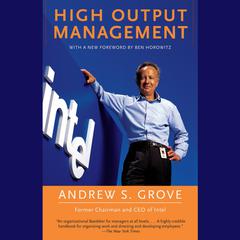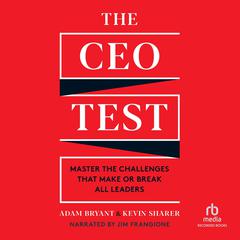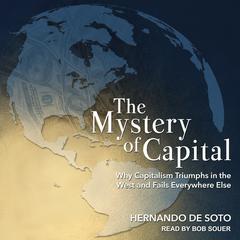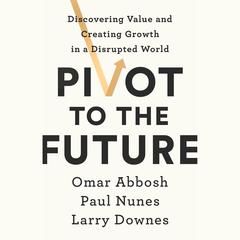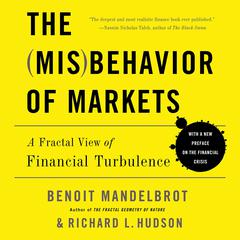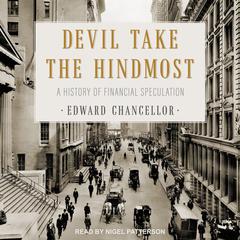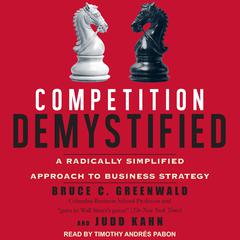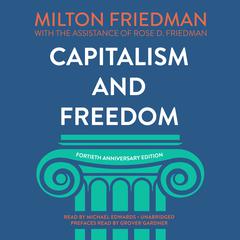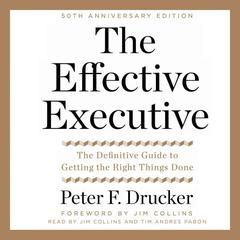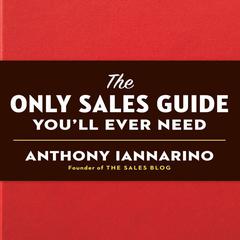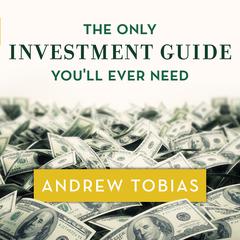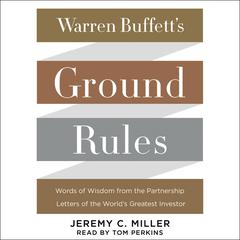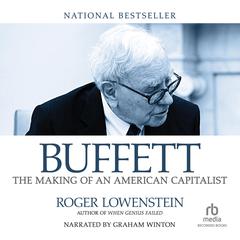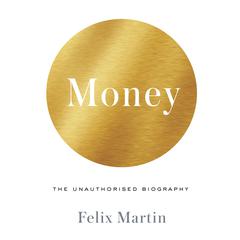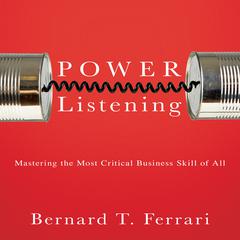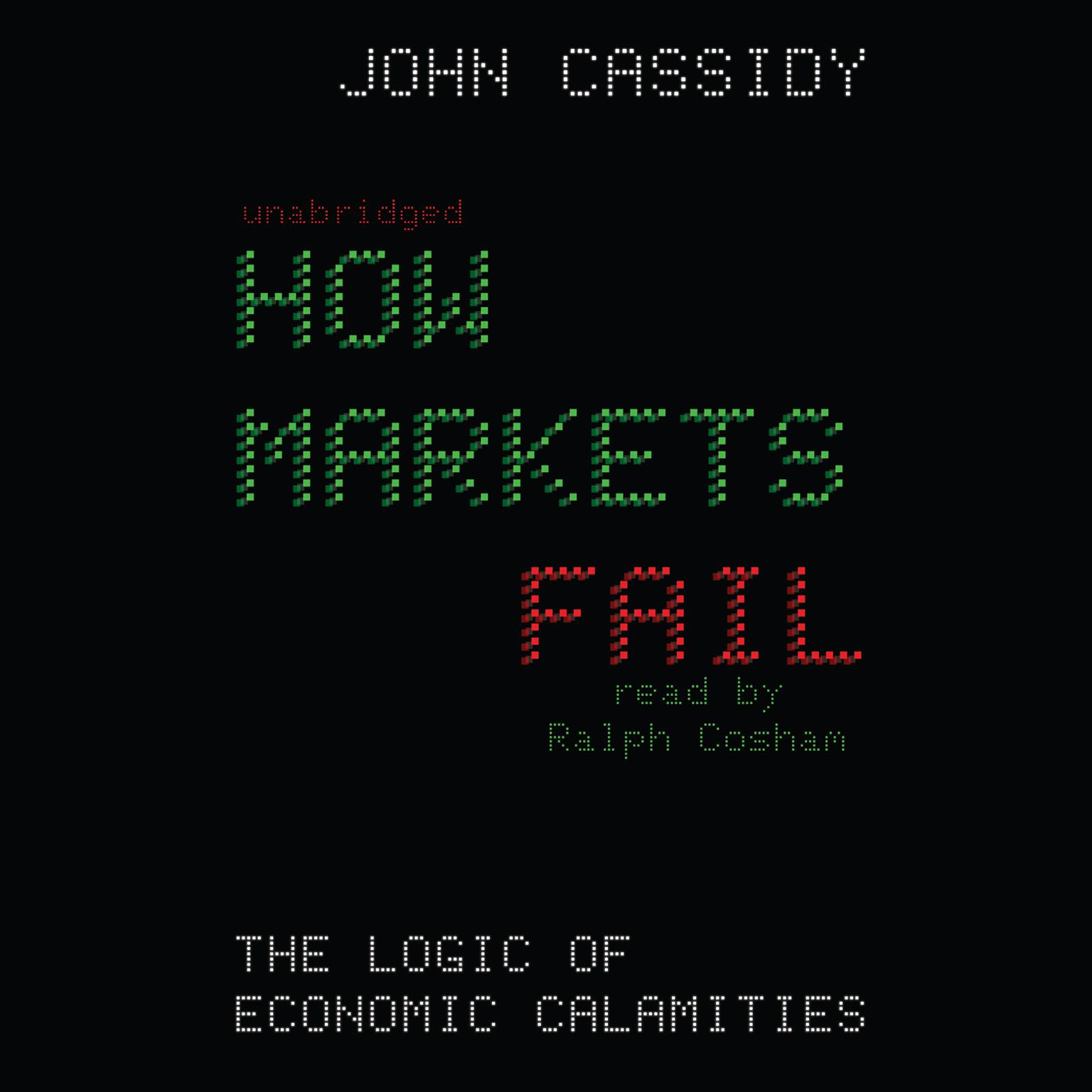 Play Audiobook Sample
Play Audiobook Sample
How Markets Fail: The Logic of Economic Calamities Audiobook
 Play Audiobook Sample
Play Audiobook Sample
Quick Stats About this Audiobook
Total Audiobook Chapters:
Longest Chapter Length:
Shortest Chapter Length:
Average Chapter Length:
Audiobooks by this Author:
Publisher Description
Behind the alarming financial headlines is a little-known story of bad ideas. For over fifty years, economists have been developing elegant theories of how markets work. What about when markets don’t work? What about when they lead to stock-market bubbles, glaring inequality, polluted rivers, real-estate crashes, and credit crunches?
In How Markets Fail, Cassidy describes the influence “utopian economics” thinking that is blind to how real people act and that denies the ways an unregulated free market can produce disastrous unintended consequences. Oil-price spikes, CEO greed cycles, and boom-and-bust waves are the inevitable outcome of self-serving behavior in a modern market setting. Cassidy looks to the leading edge of economic theory, including behavioral economics, for a new, enlightening view of our volatile global economy.
Download and start listening now!
"Cassidy's book is both a history of ideas and a history of the late financial unpleasentness. He reviews both the work of such economists as Milton Friedman, Robert Lucas and others who advocated economic policies with few regulations, low taxes, and little or no attempt to limit recessions through deficit spending. These approaches generally take as given that Leon Walras in the 19th century demonstrated that markets are efficient in his general equilibrium model. Mathematical economists since the second world war have found that the general equilibrium model applies only under some remarkable circumstances, such as economic actors having perfect information, and in world where there are no economies of scale. Since the second world war other economists have also indicated areas where information assymetries also lead to bad outcomes, such as in the markets for used cars, heath care, and financial markets. Although these newer economic approaches are not so new now, having been around for decades, they have made remarkably little impact on the teaching of basic economics, which more closely follows the outlook of Friedman or Lucas. As a result, these more orthodox views remain in the minds of policy makers, such as the governors of the Federal Reserve System. Thus, these policy makers assume until it is too late that financial bubbles cannot happen in a free market."
— Converse (4 out of 5 stars)
Quotes
-
“Brilliant.”
— New York Times Book Review -
“[How Markets Fail] brilliantly dissects much of what has passed for economic wisdom, and decries the lack of humility from those whose theories helped cause the disaster.”
— New York Times -
“[How Markets Fail] is more than just an account of the failures of regulators and the self-deception of bankers and homebuyers, although these are well covered. For Mr. Cassidy, the deeper roots of the crisis lie in the enduring appeal of an idea: that society is always best served when individuals are left to pursue their self-interest in free markets...an ambitious book, and one that mostly succeeds.”
— Economist -
“The last major attempt of 2009 to make sense of what has become of the discipline of economics.”
— Financial Times (Best Books of the Year) -
“Highly readable...Cassidy offers a clear and occasionally colorful exposition of the evolution of relevant economic thought in a way that is accessible to non-economists.”
— Foreign Affairs -
“An ambitious, nuanced work that brings ideas alive...Cassidy makes a compelling case that a return to hands-off economics would be a disaster.”
— BusinessWeek -
“An essential, grittily intellectual, yet compelling guide to the financial debacle of 2009.”
— London Evening Standard -
“Fascinating and important.”
— Slate -
“A well constructed, thoughtful, and cogent account of how capitalism evolved to its current form.”
— Daily Telegraph -
“Market disasters—and the cycle of delusions responsible—receive lively, engaging analysis by Cassidy…Both a narrative and a call to arms, the book provides an intellectual and historical context for the string of denial and bad decisions that led to the disastrous ‘illusion of harmony,’ the lure of real estate and the Great Crunch of 2008. Using psychology and behavioral economics, Cassidy presents an excellent argument that the market is not in fact self-correcting, and that only a return to reality-based economics—and a reform-minded move to shove Wall Street in that direction—can pull us out of the mess in which we’ve found ourselves.”
— Publishers Weekly -
“Cassidy delivers on the promise of his title, but he also offers a clear-eyed look at economic thinking over the last three centuries, from Adam Smith to Ben Bernanke, and shows how the major theories have played out in practice, often not well...Cassidy writes with terrific clarity and a finely tuned sense of moral outrage, yielding a superb book.”
— Kirkus Reviews (starred review)
Awards
-
A 2010 Pulitzer Prize Finalist for General Nonfiction
-
A 2010 Helen Bernstein Book Award for Excellence in Journalism Finalist
How Markets Fail Listener Reviews
-
" Utterly clear and clever analyses. "
— Jason, 2/13/2014 -
" Interesting economics book about the different philosophies that have evolved around markets since Adam Smith and how theory often diverges from reality. It then goes into detail about market failure and spillovers and the balancing act between too much government action and too little of it, arguing that instead of people clamoring for government to take over everything or those clinging to totally unfettered free markets, the solutions are somewhere in between. It gives a sensible breakdown of the economic collapse from the housing bubble burst and some solutions to make things more stable, though most of the proposals aren't likely to happen. "
— Tony, 2/10/2014 -
" Great book. Well researched and historical describing how our free market economic policies have lead us through generations of bubbles, crisis, and other financial crisis. He reviews Adam Smith, Hayek, Milton Friedman and others. Cassidy is a journalist and economist who writes for the New Yorker. He contends that economics has evolved into an almost pure quantitative field that fails to consider how out of touch with reality the field has become. Flawed markets do not always generate good outcomes. (No kidding.) Individuals are not rational. Markets are not stable and predictable. (Again no kidding.) He blames Greenspan for the housing bubble because he kept interest rates too low too long encouraging over buying and because he believed the mortgage market was self regulating. He promotes Hyman Minsky's reality/behaviorial economic theory that the markets are inherently unstable and promote busts and bubbles. He believes as did Keynes and others that markets cannot regulate themselves and need to have government oversight. "
— Ruth, 1/23/2014 -
" Good, especially the first half talking generally about the problems with "Utopian economics". The later parts are more specifically about the 2007 crash. "
— Jeremyc, 1/16/2014 -
" Een zeer diep inzicht in de belangrijkste economische theorieen, het door rationele irrationaliteit ontstaan van de bankencrises en de hervormingen die de overheid moet uitvoeren. "
— Martijn, 1/14/2014 -
" It seems like it's going to be a dense read, but this almost gripping book is surprisingly comprehensive yet completely relevant. If he gave a little more attention to his opponents, this book would be perfect. "
— Arithmomaniac, 12/30/2013 -
" Not a page turner for everyone but traces a history through the discipline of economics very well. "
— Chris, 12/16/2013 -
" Really enjoyed this one. Very good basic intro to assumptions of neoclassical econ theory and the basic critiques of that theory. easy to follow "
— John, 12/7/2013 -
" A delightful and pro capitalism look at the weaknesses of the free market. One of my favorite books on the subject. No doubt due for a reread. "
— Will, 11/29/2013 -
" Brilliant analysis of how we stick to limited theories(Utopian Economics) and repeat our mistakes ... we should allow ourselves to research and study all different Economic theories. "
— Randa, 11/26/2013 -
" this book is magnificent. More than its discussion of recent events, the history of economics that is provided is extremely useful and extremely well written. "
— Jordan, 9/14/2013 -
" For authors who write for the general public: brevity and presenting complex ideas in simple ways are a virtue. This author hadn't those virtues. Had to give up half way in. "
— Robert, 5/9/2013 -
" Cassidy provides not just a persuasive and insightful discussion of the 2008 mortgage crisis, he also presents an intriguing and easily digestible history of economics. Highly recommended. "
— Jacob, 12/12/2012 -
" Great book that serves also as a quick reader on that part of the history of economic thought which is relevant for making sense of the 2008 financial crisis. "
— Deep, 11/14/2012 -
" Great stocking stuffer for Libertarian friends. "
— Joseph, 10/16/2012 -
" Absolutely fantastic. Just the right level for me - somewhere between knowing nothing about economics and being an economist. Straightforward and informative. "
— Antonio, 8/15/2012 -
" So boring. Couldn't get through it "
— Christina, 4/15/2012 -
" Good, non-pretentious analysis of the current economic crisis - by looking back. An American author quotes Marx in a mainstream publication? Whoa, the times, they are a changing. Make no mistake, this is an analysis, not a call to arms. "
— pinaceae, 10/9/2011 -
" This is a well-researched treatise on the failure of markets. If you want a good overview of economic theory and an informed discussion of how those theories fall down, you will want to read this book. While I don't hold with all of his ideas, his arguments are provocative. "
— Steve, 2/25/2011 -
" Great book that serves also as a quick reader on that part of the history of economic thought which is relevant for making sense of the 2008 financial crisis. "
— Deep, 2/16/2011 -
" Absolutely fantastic. Just the right level for me - somewhere between knowing nothing about economics and being an economist. Straightforward and informative. "
— Antonio, 12/31/2010 -
" For authors who write for the general public: brevity and presenting complex ideas in simple ways are a virtue. This author hadn't those virtues. Had to give up half way in. "
— Robert, 8/26/2010 -
" Not a page turner for everyone but traces a history through the discipline of economics very well. "
— Chris, 8/7/2010 -
" Very interesting (considering the subject). Easy to read and understand. I now have a general understanding of credit derivative swaps! "
— Andrew, 6/26/2010 -
" An articulate defense of regulation and intervention. "
— Rich, 6/24/2010 -
" sort of a history of economics (only as far as Adam Smith) - will need to interloan in the future "
— Linda, 5/5/2010 -
" Really enjoyed this one. Very good basic intro to assumptions of neoclassical econ theory and the basic critiques of that theory. easy to follow "
— John, 4/29/2010
About John Cassidy
John Cassidy is a journalist at the New Yorker and a contributor to the New York Review of Books. He is the author of Dot.con: The Greatest Story Ever Sold. He lives in New York City.
About Geoffrey Howard
Geoffrey Howard (a.k.a. Ralph Cosham) was a stage actor and an award-winning narrator. He recorded more than 100 audiobooks in his lifetime and won the prestigious Audio Award for Best Narration and several AudioFile Earphones Awards.





